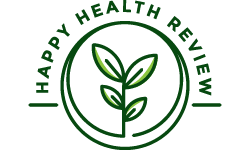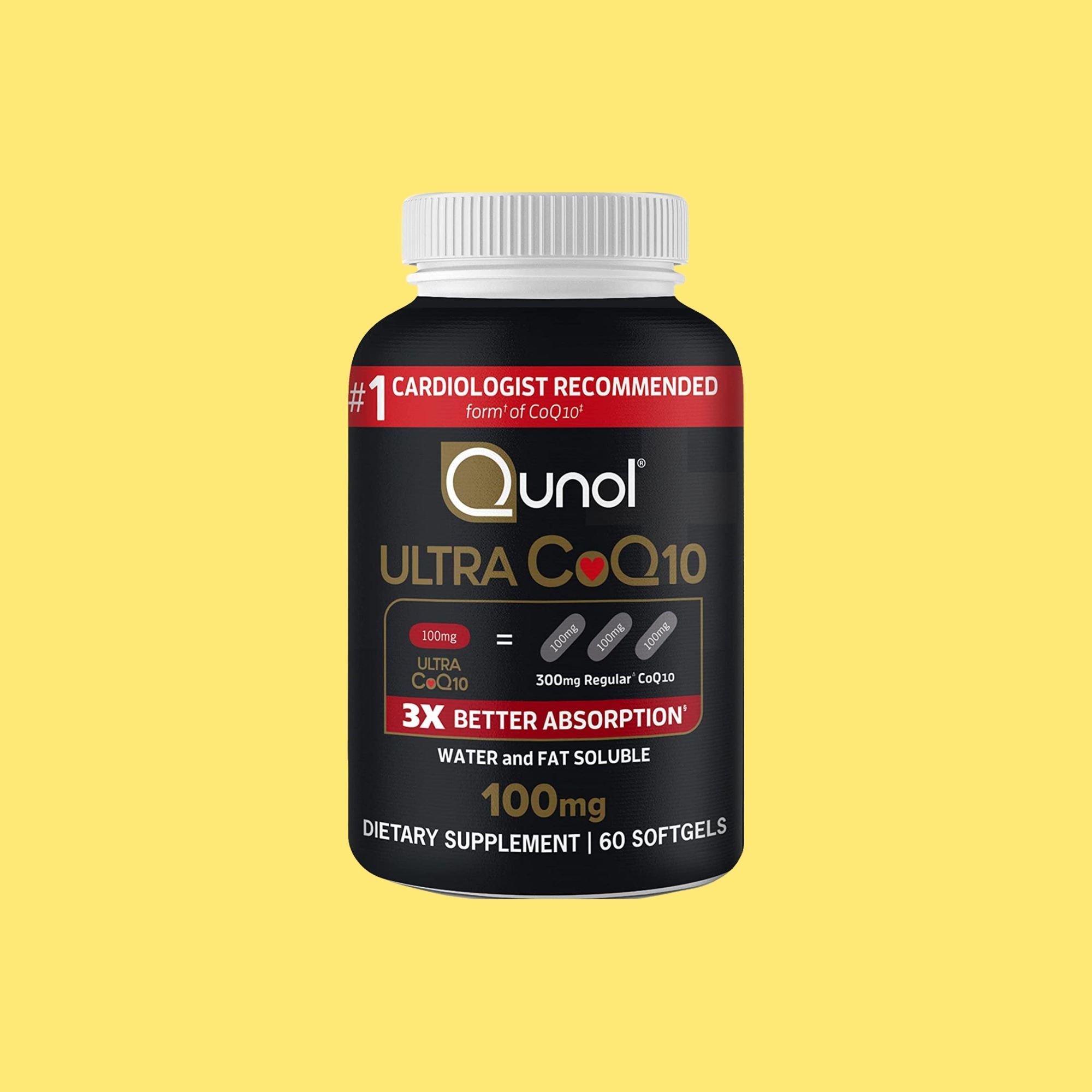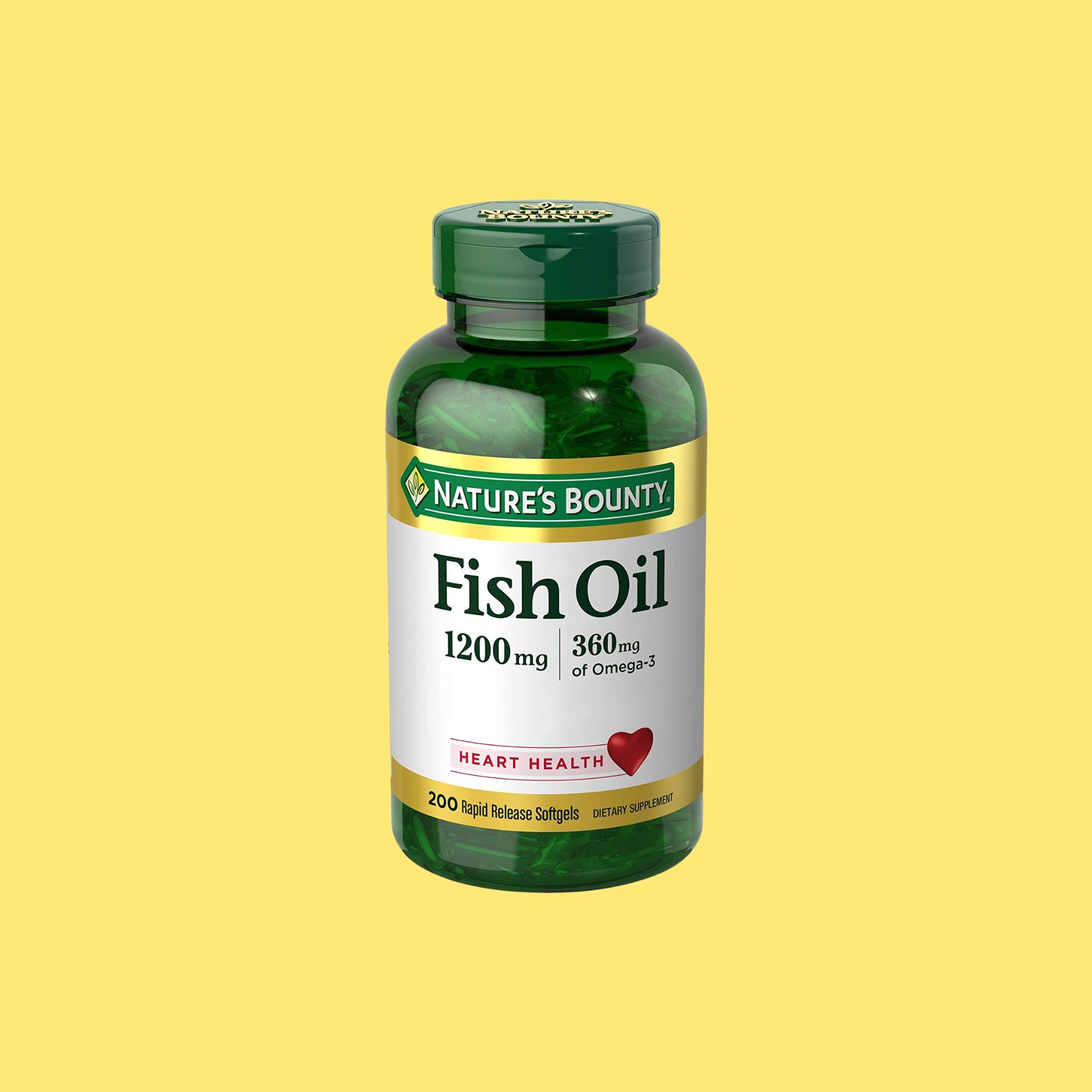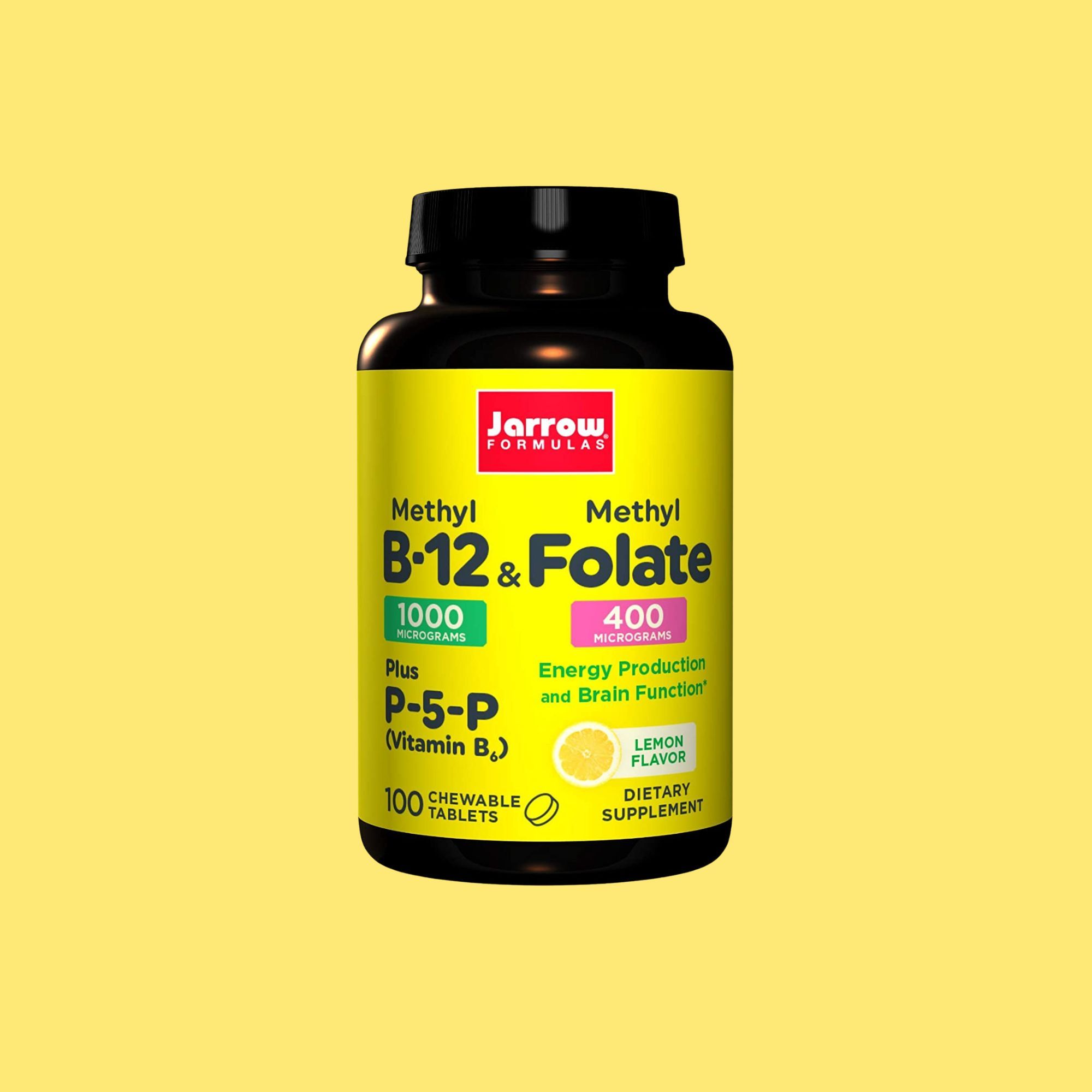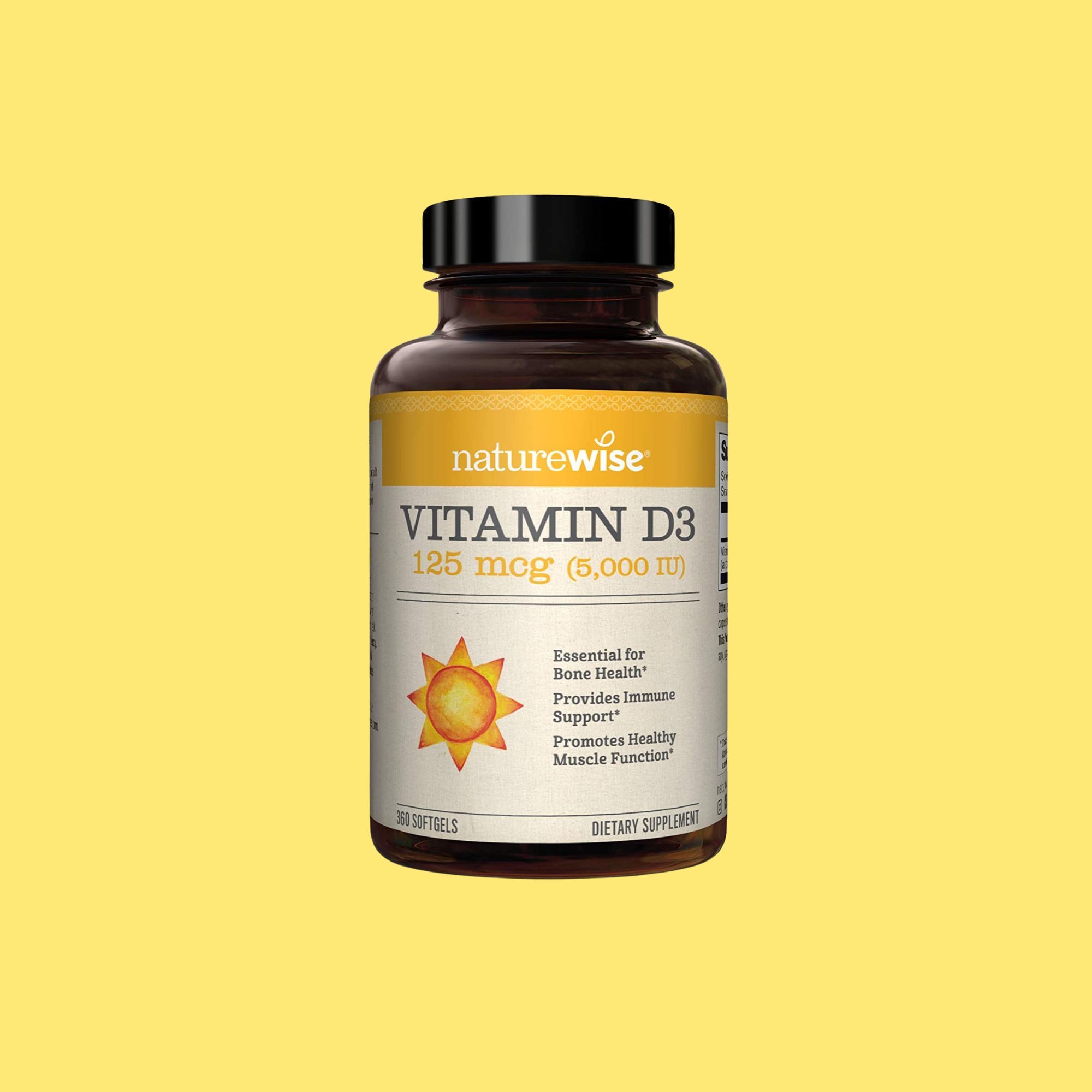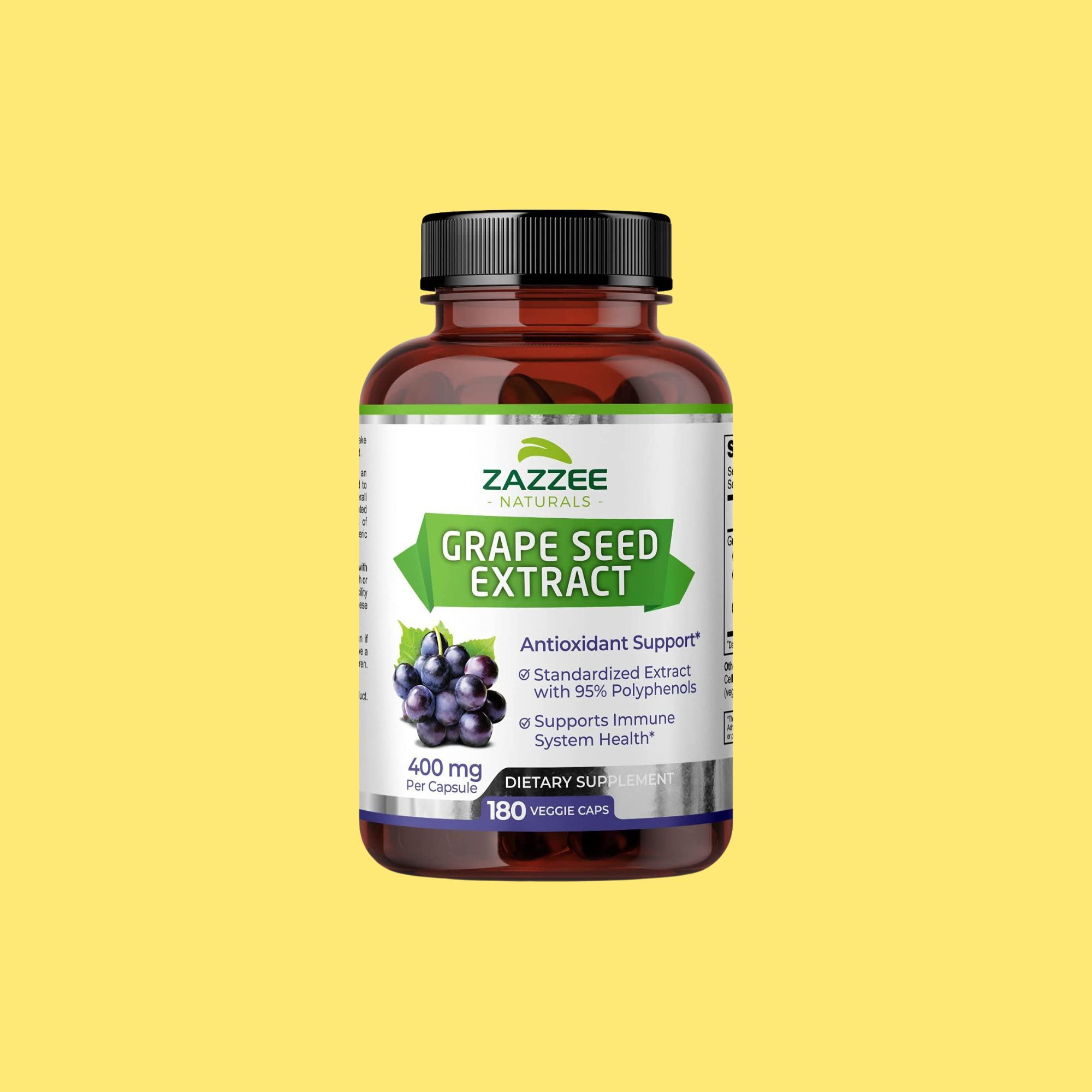Best Supplements for Heart Health for People Who Need a Little ~Boost~ As They Age
Get the most out of your heart health with vitamins that support your heart. They are natural, scientifically-proven to keep your heart strong.

Your heart is probably the hardest working organ in the body and it’ll be the centerpiece of your cardiovascular health. Despite this, 1 in every 4 Americans suffers from some type of heart disease.
Fortunately, there are several things you can do to prevent yourself from becoming one of these statistics. Eating foods rich in healthy fat, and quality protein is a good place for beginners to start. Cardio and resistance exercises can help you improve your cardiovascular health.
Other elements can help optimize your heart health besides eating healthy foods. Here are scientifically proven herbs and nutrients that address various aspects of cardiovascular health.
We independently research, review and recommend what we think are the best products that meet your needs. If you buy a product through one of our retail links, we may earn a small affiliate commission at no cost to you.
CoQ10 provides energy to every cell in the body, including those in the heart. It protects the mitochondria from free-radical damage and stabilizes cells in the heart.
A study involving 51 patients with coronary heart disease found that CoQ10 reduces free radical oxidation by as much as 30%. Preliminary studies also show that CoQ10 has heart health benefits and potent anti-inflammatory effects in the arteries.
Coenzyme Q10 (CoQ10) is so important to heart function that low levels are associated with nearly every type of cardiovascular disease risk, including coronary artery disease, hypertension, cardiomegaly, and congestive heart failure.
As you get older, your body starts making less CoQ10. To make matter worse, Statins, a cholesterol-lowering drug, deplete stores of vitamin D, which makes it an essential supplement for everyone to take.
Omega-3 supplements may help prevent chronic disease by reducing inflammation in the body. Evidence shows that omega-3 fatty acids lower blood pressure. Omega-3 fatty acids may help prevent heart attacks by lowering triglycerides and reducing inflammation.
Fish oil has also been shown to reduce the risk of sudden cardiac death in patients who have already experienced a cardiovascular risk. Omega-3 fatty acid supplements provide EPA and DHA. These nutrients help to calm inflammation.
Studies show that people with lower DHA and EPA levels tend to have higher CRP levels—inflammatory markers indicating inflammation. When these same people were given omega-3 supplements, their C-reactive protein (CRP) levels dropped significantly.
A third study found that women with high levels of EPA and DHA in their blood had 56% lower C-reactive protein (CRP) levels. Reducing inflammation may slow plaque buildup in your arteries and help prevent the formation and progression of atherosclerotic plaques. You can get enough omega-3 fatty acids from food sources by eating fatty fish like salmon or trout, as well as walnuts and flaxseed.
Many high-quality studies have found that folic acid supplementation can reduce stroke and heart disease risk. Some people with low levels of folic acid and high levels of homocysteine, an amino acid that may damage the inner walls of arteries, maybe at a higher heart attack risk and stroke. Folate may help reduce the risk of stroke by breaking down homocysteine.
So far, scientific evidence has shown folic acid's beneficial effects on heart health in people with low levels of folic acid and no pre-existing cardiovascular disease. Therefore, more research needs to be done to study the effects of folic acid on heart disease risk in different study groups, such as patients with coronary disease.
Low levels of vitamin D may increase stroke risk, heart attacks, and high blood pressure. There is some evidence that vitamin D supplementation may lower blood pressure, but only among people with heart disease who already had high blood pressure and were deficient in vitamin D. You should get your daily dose of vitamin D from your diet, but if you don't, supplements are an option.
Supplementing with vitamin D has not been shown to lower blood pressure in people with adequate vitamin D levels who also had high blood pressure. Vitamin D can increase the amount of calcium in the body. This may interfere with other heart medications that can also raise calcium levels.
Grape seed extract contains antioxidants called oligomeric proanthocyanidin complexes (OPCs), which help increase circulation by increasing nitric oxide. Nitric oxide, which is normally produced by the body, helps relax blood vessels and increases blood flow.
A small eight-month study of healthy postmenopause women found that grape seed extract also had anti-clotting properties, potentially reducing the risk for blood clots and also increasing blood flow.
As a bonus, several smaller clinical trials have reported finding that the antioxidants in grape seed extract further lower the risk of heart disease. However, if you want to get the benefits of OPCs, it’s best to choose a tannins-free supplement that provides them readily absorbed.
Frequently Asked Questions:
What is the best vitamin to strengthen the heart?
If you want healthy heart function, Omega-3 fatty Acids, folic acid, and CoQ10 should be your go-to supplements. The randomized controlled intervention trials showed that these three are the most effective for achieving optimal cardiovascular health.
How can I improve my heart naturally?
Get active and start brisk walking, running, swimming, cycling, playing tennis and skipping rope are all great ways to get your blood pumping. Doctors recommend doing at least 150 minutes of moderate activity every week.
What does CoQ10 do for your heart?
CoQ10 is widely known for helping out with congestive heart failure symptoms. Its effectiveness in controlling blood pressure may be debatable but there's evidence backing its ability to support recovery after bypass or valve surgeries when taken in combination with other nutrients.
Does CoQ10 unclog arteries?
After a study was done, researchers were thrilled with the results! CoQ10 supplements improved blood flow by a whopping 42%, decreasing the risk of heart disease by 13%.
What vitamin cleans your arteries?
HDL is like a shield for your heart - it helps ward off disease. Niacin, Vitamin B3, is the superhero of agents when it comes to boosting these HDL levels and clearing cholesterol build up in the artery walls.
Who should avoid taking CoQ10?
People with underlying health conditions, like heart failure, liver issues or diabetes should exercise caution when consuming CoQ10 supplements - they could lead to a dip in blood sugar and blood pressure levels!
Which is better for heart CoQ10 or fish oil?
If you're a fan of beef, why not switch to something healthier like fatty fish? It's packed with omega-3 fatty acids that can help reduce your risk of heart disease. If you already have cardiovascular disease or are recovering from a heart attack, CoQ10 may provide further benefits.
Supplements for Heart Health
You can use supplements to help your bones, muscles, and many other body parts. But what about your heart? Some studies show that they may help lower cholesterol, help control blood pressure, and other factors that increase your risk for heart disease. It's unclear whether there is a health benefit to help prevent heart attacks and strokes. These nutrients can help improve your heart health.
Fiber and Sterols for Your Heart
Fiber is found naturally in fruits, vegetables, and legume foods. It helps lower the amount of cholesterol your digestive system absorbs from food. Try to get at most 25 to 30 grams of daily intake of fiber. Men under age 51 should aim for between 38 and 40 grams per day to help lower LDL (bad) cholesterol levels for people who have high levels of triglycerides.
There's some evidence that using blond psyllium husks can lower "bad" LDL cholesterol levels. It can also raise good cholesterol levels. If you take a dietary fiber supplement, start by taking less than you normally would. This can help prevent bloating and cramps. Drinking plenty of water when you increase your fiber consumption is also important.
You can find sterols and stanols (plant sterols) in foods like nuts and seeds. Cholesterol is a type of fat that your body uses for energy. It helps keep your blood healthy and strong.
Fight Free Radicals
Free radicals are molecules that steal electrons from other molecules. When they steal electrons from other molecules, they trigger a chain reaction that damage the cells lining your arteries. Not only can this cause atherosclerosis, but long-term free-radicals damage can also lead to coronary heart disease risk.
Antioxidant supplements are natural substances that help protect cells from damage caused by free radicals. Coenzyme Q10 (also known as ubiquinone) is an antioxidant that protects the heart from damage caused by free radicals.
Lower Inflammation
Atherosclerosis is an important contributing factor to inflammation. Over time, plaque builds up and narrows arteries. As a result, plaque is naturally attracted to the site of inflammation. Inflammation also weakens existing plaque so that it becomes more susceptible to rupture and causes a dangerous blockage.
Prevent Calcification in Your Arteries
Calcification is the buildup of hardening tissue inside your blood vessels. Over time, this could reduce blood flow and increase the risk of heart attack and stroke. Men, especially those who are older, are at a higher chance of having coronary artery calcification, which increases with age.
However, your lifestyle also matters. Studies show that lifestyle-related health conditions like type 2 diabetes, high blood pressure, or obesity also increase your chances of developing calcified arteries.
Vitamin K2 can help prevent calcium from being built up in your arteries. According to a long-term study of almost 5,000 people, those who consumed the most vitamin K2 were 52% less likely to develop artery calcium and had a 57% lower risk of cardiovascular death.
Vitamin K2 also helps keep blood vessels healthy and strong. But make sure you're getting the K2 form because vitamin K1 won't give you the same heart-healthy benefit.
Keep Your Heart Rate Healthy
For healthy adults, the resting heart rate should be between 60 and 90 BPM. If your resting heart rate is consistently higher than 90 beats per minute, this could be a sign of tachypnea, which is when the heart beats faster than usual at rest. Untreated, tachycardia increases your risk of death, heart attack, stroke, and heart failure.
Improve Blood Flow
Blood flowing through your arteries and blood vessels carries oxygen and nutrients to every cell in your body. Poor blood flow can deprive your organs and tissues of vital nutrients. Worse yet, sluggish blood flow can also be a precursor risk for heart attack or stroke!
Promoting Better Blood Pressure
High blood pressure—or hypertension—affects approximately 27% of all Americans. High blood pressure occurs when the internal pressure within your large arteries is too elevated—and it’s a major risk factor for heart attacks and strokes. What’s too high? High blood pressure that consistently reaches 130/80.
Lower Cholesterol Levels
For years, cholesterol was considered the primary boogeyman when it came to heart disease. But here's the problem: You need cholesterol to create hormones, help your body metabolize nutrients, and produce bile.
Problems begin when cholesterol becomes oxidized (oxidized cholesterol). Triglyceride levels in the blood can be measured by looking at the level of cholesterol in the blood. Over time, this may lead to plaque buildup that eventually narrows and stiffens your arteries.
What Will Help My Heart Health?
To improve your heart health, consider adopting several lifestyle behaviors. One involves eating a balanced diet. Reducing salt intake has been shown to lower the risk of high blood pressure and heart disease. It's especially important if you have any kind of heart disease risk factors. You can lower sodium intake by:
- eat plenty of fruits and leafy vegetables
- use herbs and spices when cooking
- avoid processed foods
- reduce your intake of pre-preparations and convenience foods
- exercise regularly, not smoke
- maintain a healthy weight
- get regular checkups to monitor your blood pressure and cholesterol level.
Safe Supplement Use
Some supplements can interact negatively with your medication and even cause side effects. Talk to your healthcare providers about the safe upper limits for vitamins you take, as they may differ from person to person. If you have a history of heart conditions or if you're at high risk for a cardiac arrest, it is wise to follow your doctors' advice.
Some supplements may help protect against heart disease, however, they are not a miracle cure. Treating heart disease often involves using multiple tools, including a healthy diet, exercise, and prescription medications.
